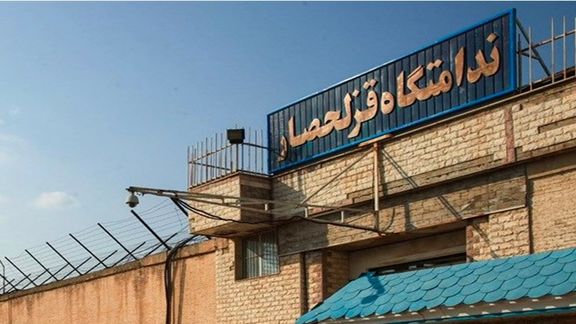Iranian Political Prisoner Accuses Authorities Of Negligence In Afghan Inmate’s Death

An Iranian political prisoner has accused prison authorities of negligence and abuse in the death of an Afghan inmate at Ghezel Hesar Prison.

An Iranian political prisoner has accused prison authorities of negligence and abuse in the death of an Afghan inmate at Ghezel Hesar Prison.
Ahmadreza Haeri, who is currently serving his sentence at the facility, made the allegation in an open letter addressed to Iran’s judiciary chief. He claimed the inmate, Nabi Bayati, died after being denied medical care during a hunger strike and described the case as an example of “systematic killing.”
In the letter, published on Wednesday, Haeri revealed that Bayati died after a hunger strike in protest against what he described as degrading treatment. He reportedly received no medical attention before his death.
Haeri stated that Bayati, along with three other prisoners, had been accused of involvement in a fight and was first placed in solitary confinement in a cell known as “the closed door.” He was then transferred to Unit 1 of Ghezel Hesar, one of the most overcrowded and volatile sections of the prison.
Haeri claimed the transfer of foreign nationals to Unit 1 violates internal prison regulations, and Bayati viewed the move as both “unjust and insulting.” According to the letter, Bayati warned prison staff that if he was not removed from Unit 1, he would begin a dry hunger strike and refuse even water.
In a disturbing detail, Haeri quoted the unit’s deputy as mockingly responding to Bayati’s threat with, “At worst, you’ll die, who cares!” Following the exchange, Bayati was reportedly relocated to the hallway of Ward 9, a high-traffic area used for inmate movement.
Four days later, Bayati died alone. Haeri insists the death was not natural and should be regarded as a “killing,” citing gross mismanagement and neglect by prison authorities.
“I have repeatedly warned that the management structure of Ghezel Hesar especially in the area of healthcare is in crisis and deeply flawed,” Haeri wrote. “This structural disorder has paved the way for tragedies like what happened to Nabi Bayati.”
Haeri also criticised the judiciary for failing to send a representative to investigate the death. “This indifference, in effect, amounts to the endorsement of an inmate’s killing,” he added.
He further noted that not only were legal protocols for handling hunger strikes ignored, but Bayati’s basic human rights were also violated. Haeri stressed that he was an eyewitness to the entire incident.